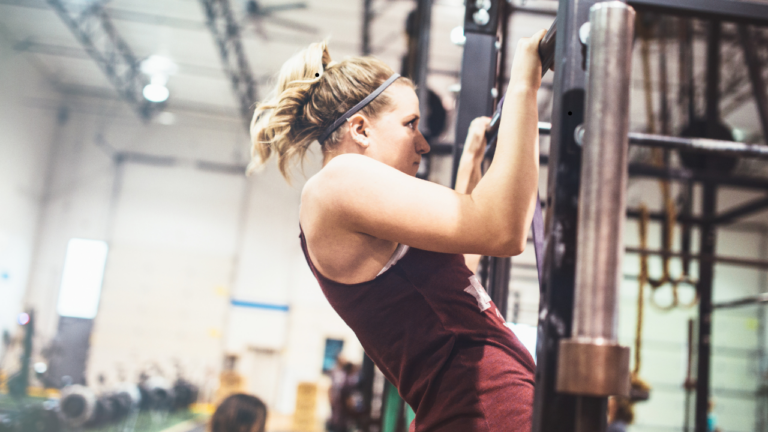Navigating Training on Tough Nights: Strategies for Female CrossFit Athletes

As a female CrossFit athlete, you understand the importance of quality sleep for recovery, performance, and overall well-being.
Yet there are times when life’s demands, stressors, (hormones!!), or disruptions can lead to a restless or inadequate night of sleep, leaving you feeling fatigued and drained the next day.
While training on a bad night of sleep may seem daunting, it’s possible to navigate these challenges with resilience, adaptability, and smart strategies.
Here are some effective approaches for female CrossFit athletes to optimize their training on nights when sleep is less than ideal, empowering you to maintain progress and stay on track towards your fitness goals.
Assess Your Energy Levels:
- Start by assessing how you feel upon waking up after a night of poor sleep.
- Be honest with yourself about your energy levels, mood, and overall readiness to train, and adjust your expectations accordingly.
Prioritize Warm-Up and Mobility:
- Begin your training session with a thorough warm-up and mobility routine to prepare your body for movement and mitigate stiffness or soreness from lack of sleep.
- Focus on dynamic stretches, foam rolling, and activation exercises to awaken your muscles and joints and improve movement quality.
Modify Intensity and Volume:
- Be prepared to modify the intensity and volume of your workout based on your energy levels and how you’re feeling.
- Consider scaling back the intensity, reducing the number of sets or reps, or choosing lighter weights to ensure a safe and sustainable training session.
Focus on Technique and Form:
- Use your training session as an opportunity to focus on technique, form, and movement quality rather than pushing for maximal performance.
- Prioritize proper mechanics and execution of each exercise to minimize the risk of injury and optimize muscle activation and engagement.
Choose Recovery-Focused Workouts:
- Consider opting for workouts that emphasize recovery, mobility, and lower-intensity movement on days when you’re feeling fatigued.
- Incorporate activities such as yoga or zone-2 cardio to promote circulation, flexibility, and relaxation while still moving your body.
Hydrate and Fuel Properly:
- Hydration and nutrition play a crucial role in supporting energy levels and performance, especially on days when sleep is compromised.
- Drink plenty of water throughout the day to stay hydrated, and fuel your body with nutrient-dense foods that provide sustained energy and support recovery.
Mindset and Mental Resilience:
- Adopt a positive mindset and approach your training session with a mindset of resilience and determination. Instead of worrying about how training will go, be curious about what’s possible given how you feel.
- Remind yourself that showing up and putting in the effort, even on tough days, is an accomplishment in itself and contributes to your long-term progress and growth as an athlete.
Listen to Your Body:
- Pay close attention to your body’s signals and adjust your training accordingly.
- If you’re feeling excessively fatigued, dizzy, or lightheaded, it’s important to listen to your body and prioritize rest or recovery activities instead of pushing through a challenging workout
Practice Self-Compassion:
- Be kind to yourself and practice self-compassion on days when training feels particularly challenging.
- Remember that everyone experiences fluctuations in energy and performance, and it’s okay to have off days or moments of struggle. Celebrate your efforts and progress, regardless of the outcome.
Training on a bad night’s sleep can present unique challenges for athletes, but with the right strategies and mindset, it’s possible to navigate these obstacles and still have a productive and fulfilling workout.
By prioritizing warm-ups, modifying intensity, and listening to your body, you can optimize your training session and support your long-term progress and performance goals.
Remember that consistency, resilience, and self-care are key components of success in fitness and life, and by approaching training with adaptability and grace, you can continue to thrive as a female CrossFit athlete, even on tough nights!






